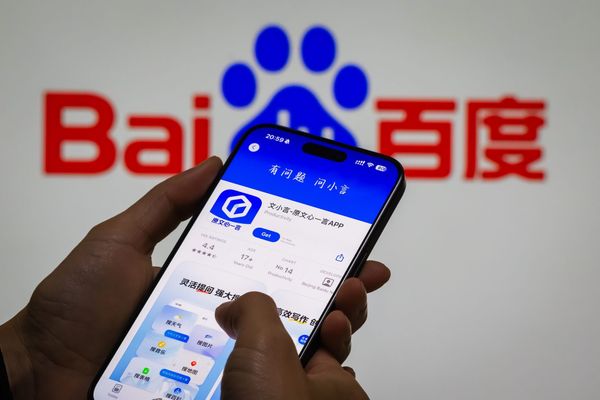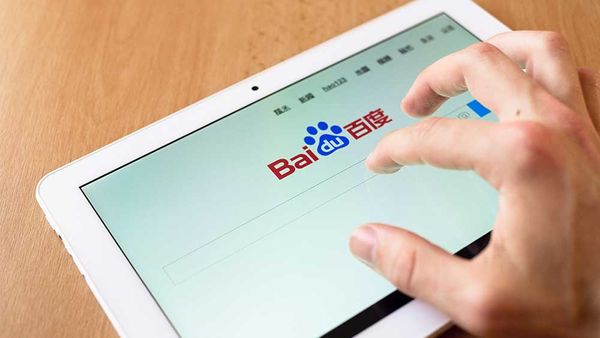
DeepSeek shook up the tech world in January, forcing companies and investors to rethink the path to AI. That’s not just happening in the West, as Chinese tech firm Baidu, which took an early lead in its country’s AI race, now faces a more competitive landscape.
“Innovation can’t be planned,” said Baidu CEO Robin Li during a fireside chat with H.E. Omar Sultan Al Olama, the UAE’s AI minister, at the World Governments Summit in Dubai on Tuesday.
“You don’t know when and where the innovation comes. What you can do is just to foster an environment that is conducive to innovation,” Li added.
The Baidu CEO acknowledged the rapid drop in inference costs for AI applications, noting that they led to productivity gains. But like some of his Western counterparts, Li warned that it wasn’t time to taper off the flow of capital investment.
“When technology still evolves at such a rapid rate, you just cannot stop investing. You have to invest to make sure that you are at the very front of this technological innovation or revolution,” Li said and added that investments needed to continue in sectors like cloud infrastructure and tech development.
Baidu and Apple
Li’s comments in Dubai come as Baidu’s early lead in China’s AI sector is under threat.
Baidu shares fell as much as 3% in Hong Kong trading on Wednesday after The Information reported that Apple struggled to get the tech company’s AI model to work on its iPhones.
Shares of Baidu recovered in afternoon trading after CNBC reported that the company plans to release an update to its Ernie AI model sometime this year, citing a source familiar with the situation.
Baidu did not immediately respond to Fortune’s request for comment.
Media reports last year suggested Apple approached Baidu as a possible partner to bring iPhone’s AI services to China. Yet according to The Information, Apple is now considering Baidu’s competitors, particularly Alibaba, to support Apple Intelligence in China. (Alibaba’s Hong Kong–traded shares rose almost 8.5% on Wednesday.)
Apple also reportedly passed over DeepSeek as a potential partner, believing the startup lacked the manpower and experience to support a large tech firm.
The iPhone maker has yet to release its Apple Intelligence services in mainland China. The company has struggled to maintain sales in the Chinese market, in part owing to increased competition from local brands. Apple CEO Tim Cook also said on an earnings call in January that Apple reported better results in markets that had rolled out Apple Intelligence.
An early mover
Baidu rolled out Ernie Bot in March 2023, soon after the 2022 release of OpenAI’s ChatGPT. By the end of that year, Baidu claimed that its chatbot had accumulated over 100 million users. Then, by February 2024, the tech company said that Ernie was contributing to its overall revenue.
Yet despite its head start, the internet search giant is now competing against an array of Chinese tech firms, large and small, that are releasing their own generative AI models.
Besides DeepSeek, big tech companies like Alibaba, Tencent, and ByteDance have all released their own models. These tech behemoths are also backing other startups like MiniMax, which have released their own AI models.
In Dubai, Li highlighted that Baidu’s AI applications aren’t just limited to those targeting internet users or enterprises.
Baidu has turned to autonomous driving as another source of growth. Baidu operates Apollo Go, first introduced in 2019, across 11 cities in mainland China. Hong Kong has also granted Baidu a license to test its self-driving cars in the territory, marking Apollo Go’s first venture outside mainland China.
Apollo Go provided 988,000 rides for the three months ending in September 2024, up 20% from the same period a year ago, according to the company. The robotaxi service has delivered 8 million rides cumulatively as of November 2024.
Baidu reports its fourth-quarter and full-year results on Feb. 18.










